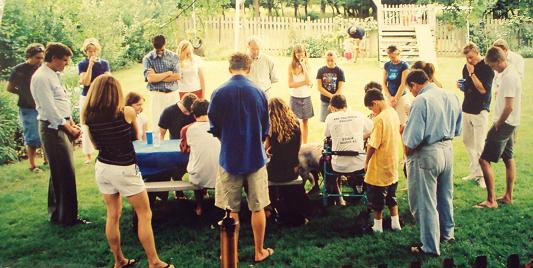Before I became a widow, I heard from many friends about the nightmare of paperwork that follows a spouse’s death. Some wives have been privy to this part of the marriage all along, naturally skilled to understand it. Most, however, are like me with talents in other areas. “He always took care of that department,” they say. Sadly, that translates to hours and hours of climbing a steep learning curve once their men are gone. And that’s me.
Today I told Louisa, “I have four mountains to climb,” meaning four online, data-related jobs to accomplish in partnership with the World Wide Web. The thought paralyzes me. I’ve figured out how to post blogs, but beyond that I’m in a foreign land without an interpreter.
Back when computers were new, when Nate and I were both green at emailing, we’d practice on each other. He’d send me quick one-line messages from the office, bringing me up to date on who he’d seen or what he’d learned that I might have found interesting. I’d do the same from home.
If he got an email from one of our kids, he’d forward it to me and preface it with a line or two: “From San Diego at noon. Lars is a good boy.” The email might have been a simple thank you from an adult child to a dad. Used like this, computers became our friends.
Since Nate died, however, my computer and I have entered a love-hate relationship. I love keeping up with our former world in the Chicago area, setting up visiting dates, reading blog comments and receiving prayer requests and answers. But oh the effort to get along with institutions: insurance companies, medical offices, government agencies, universities.
Although 800-numbers are tricky to find on web pages these days, when I finally do reach a human, the song and dance is always the same: “It’s easy! Just right-click on this, left-click on that, hover-over-this-other and voila! Done!”
Maybe for you.
My computer refuses to speak my click-language.
So much of success is in learning the right lingo. That’s true in my relationship with computers and also with God. When I talk to him, am I speaking his language? If I say, I don’t need you; you’re old-fashioned; you might be wrong; I control my own destiny, nothing good will come from those words. It’s like right-clicking when it should be left.
The key to being heard by the Almighty is to use the correct language. I’m sorry; please forgive me; I love you; come into my life; I want to obey you. When we click on the right web page instructions, good things happen. When we approach the Lord in the right way, the heavens will open.
I’m still learning God’s lingo, and he remains willing to teach me. I hope with practice, I’ll improve at communicating with him. I do know I’ll never give up trying.
Something else I won’t give up on is trying to learn the language of computers. Maybe I can find a Geek Squad willing to rent my empty bedroom.
“May the words of my mouth and the meditation of my heart be pleasing in your sight, O Lord, my Rock and my Redeemer.” (Psalm 19:14)



